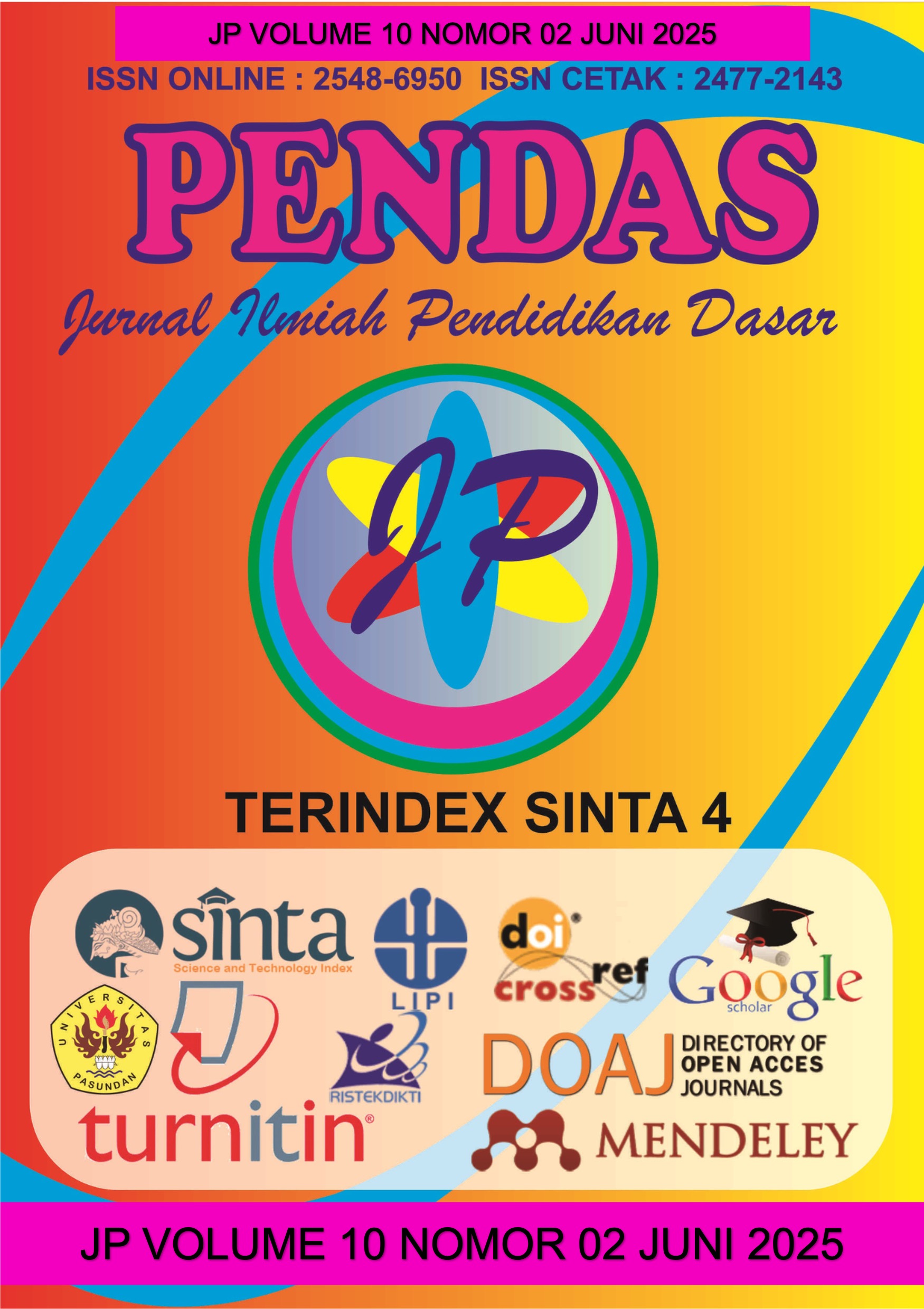IMPLEMENTASI PROGRAM KAMPUS MENGAJAR TERHADAP PENINGKATAN LITERASI & NUMERASI PESERTA DIDIK SD NEGERI 2 SUMBERAGUNG
Keywords:
Literacy Skills, Numeracy Skills, Teaching Campus, Elementary SchoolAbstract
The aim of this research is to improve literacy and numeracy skills through the Teaching Campus program. The program involves students who teach in schools in designated areas, who face challenges in increasing literacy and numeracy in each school. The method applied in this program is through an interactive and participatory approach. Students collaborate with the principal, teachers at school to design and implement creative and interesting learning. Using a variety of concrete materials and existing resources to increase students' interest and understanding of literacy and numeracy. This service activity was carried out at SD Negeri 2 Sumberaguang Nogosari Sumberagung in Jetis District, Bantul Regency, Yogyakarta Province. This activity lasted for four months from 19 February 2024 to 19 June 2024. The final results of the Mengajar campus program significantly increased the literacy and numeracy skills of students at SD Negeri 2 Sumberagung. After four months of implementation, there was an increase in the average literacy score of 71.9% compared to the previous 53.5%, and the numeracy score increased by 71.2%, based on the results of the pre-test and post-test. Apart from that, student participation in carrying out literacy and numeracy activities also increased significantly, showing high student interest. The Teaching Campus program provides many opportunities for students to make useful contributions to basic education, and students benefit from innovative learning that focuses on improving literacy and numeracy.
Keywords: Literacy Skills, Numeracy Skills, Teaching Campus, Elementary School
Downloads
References
Deviana, T., & Aini, D. F. N. (2022).
Learning Progression Guru
243
Sekolah Dasar Dalam
Pengembangan Konten Soal
Asesmen Kompetensi
Minimum (Akm). Jurnal
Basicedu, 6(1), 1285–1296.
Fauziah, A., Sobari, E. F. D., &
Robandi, B. (2021).
Analisis Pemahaman
Guru Sekolah Menengah
Pertama (SMP) Mengenai
Asesmen Kompetensi
Minimum (AKM). Edukatif
:Jurnal Ilmu Pendidikan, 3(4),
1550–1558.
Kemendikbud. (2020). AKM dan
Implikasinya pada
Pembelajaran. In
Kementerian Pendidikan
Dan Kebudayaan.
Purwati, P. D., Faiz, A., Widiyatmoko,
A., & Maryatul, S. (2021).
Asesmen Kompentensi
Minimum (Akm) Kelas
Jenjang Sekolah Dasar
Sarana Pemacu
Peningkatan Literasi Peserta
Didik. Sosio Religi: Jurnal
Kajian Pendidikan
Umum, 19(1), 13– 24.
Puspasari, I., & Dafit, F. (2019).
Implementasi Gerakan Literasi
Pendas : Jurnal Ilmiah Pendidikan Dasar,
ISSN Cetak : 2477-2143 ISSN Online : 2548-6950
Volume 09 Nomor 03, September 2024
Sekolah Di Sekolah
Dasar, Jurnal
Basicedu, 3 (2), 524-532.
Utari, D., & Muadin, A. (2023).
PERANAN PEMBELAJARAN
ABAD-21 DI SEKOLAH
DASAR DALAMMENCAPAI
TARGET DAN TUJUAN
KURIKULUM MERDEKA.
JURNAL PENDIDIKAN ISLAM
AL-ILMI, 6(1), 116.
Yusuf, A. M. (2017). Metode
Penelitian Kuantitatif,
Kualitatif & Penelitian
Gabungan. In Metode
Penelitian Kuantitatif, Kualitatif
& Penelitian Gabungan. Jurnal.
Downloads
Published
Issue
Section
License
Copyright (c) 2025 Pendas : Jurnal Ilmiah Pendidikan Dasar

This work is licensed under a Creative Commons Attribution 4.0 International License.














































